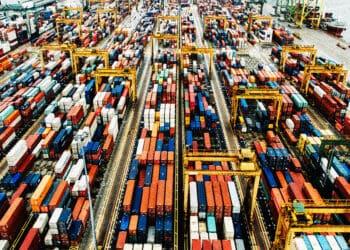Canada’s anti-forced labor law went into effect at the beginning of this year. Steve Carpenter of Creditsafe takes a closer look at the law, the first of its kind in North America.
Canada’s Fighting Against Forced Labour and Child Labour in Supply Chains Act went into effect Jan. 1, requiring businesses both public and private to demonstrate efforts in minimizing the risks of child and forced labor in their supply chains and mandating annual reporting.
The law establishes a public registry where all covered companies are required to file reports on the steps they have taken to reduce the risk that forced labor or child labor is used at any step of the production of goods in Canada or elsewhere. This registry will allow consumers, civil society organizations and other stakeholders to access information about a company’s actions to address forced labor and child labor. The Canadian government will enforce compliance with the reporting obligations. Failing to provide a report, providing false or misleading information, or failing to keep records could result in penalties and prosecution by the Canadian government.
The Canadian law isn’t unique in the world — the UK, Germany, France and Australia have similar ones — though it is the first such national law in North America.
Canada’s new law applies to entities that are listed on a Canadian stock exchange, have a place of business in Canada, do business in Canada or have assets in Canada. Foreign entities may be covered if they also meet at least two of the following three criteria based on their consolidated financial statements over the past two financial years:
- Has at least $20 million in assets
- Generates at least $40 million in revenue
- Employs an average of at least 250 employees
It also applies to entities that produce, sell or distribute goods, either in Canada or abroad, those that import goods into Canada and those dealing in goods, either in Canada or abroad.
Mapping Efforts to Mitigate Supply Chain Risks
Managing third-party relationships key to rising compliance requirements
Read moreDetailsWhat the law does
Reporting is a critical component to complying with Canada’s new law. Covered organizations must furnish an annual report, publicly disclosing the risks of modern slavery within their supply chains and the steps taken to mitigate them. The report must also include:
- Business structure
- Relevant due diligence policies and processes
- Training provided to employees
- Steps taken to address any use of modern slavery
- Measures taken to remediate the loss of income to the most vulnerable families that may be affected by those steps taken to eliminate the use of modern slavery
Covered companies’ first reports under the law were due at the end of May, obligating companies to show that neither they nor their suppliers use forced labor or child labor. The law defines those terms as:
- Child labor is defined as labor or services provided or offered to be provided by persons under the prescribed age set out by local labor laws.
- Forced labor means labor or services provided or offered by persons under circumstances that could reasonably be expected to cause the person to believe their safety or the safety of a person known to them would be threatened if they failed to provide or offer to provide the labor or service; or constitute forced or compulsory labor as defined in article 2 of the Forced labor Convention, 1930, adopted in Geneva on June 28, 1930.
Companies could be fined as much as Can$250,000 for noncompliance or making false/misleading statements.
Are companies prepared?
As companies consider compliance with the new Canadian law, the most important thing to remember is that due diligence cannot and should not be a nice-to-have; it must be a top priority.
Although the law itself doesn’t mandate specific due diligence measures, it requires companies to adopt responsible business practices to detect and minimize the risk of using child labor or forced labor in their supply chains. This may include conducting risk assessments, engaging with suppliers and taking appropriate action to address identified issues. That spells trouble for the 42% of manufacturers who reported that they would still work with a supplier that has been sanctioned or involved in corruption, bribery, fraud, money laundering or slave labor.




 Steve Carpenter is country director for North America for Creditsafe. He leads the Canada operation, which is a strategic alliance with Equifax Canada, launched in 2020. He is responsible for overseeing business operations, sales, P&L and product & data. With a 16-year tenure at Creditsafe, he previously held the position of business development director for the Creditsafe Group, headquartered in the UK.
Steve Carpenter is country director for North America for Creditsafe. He leads the Canada operation, which is a strategic alliance with Equifax Canada, launched in 2020. He is responsible for overseeing business operations, sales, P&L and product & data. With a 16-year tenure at Creditsafe, he previously held the position of business development director for the Creditsafe Group, headquartered in the UK. 









